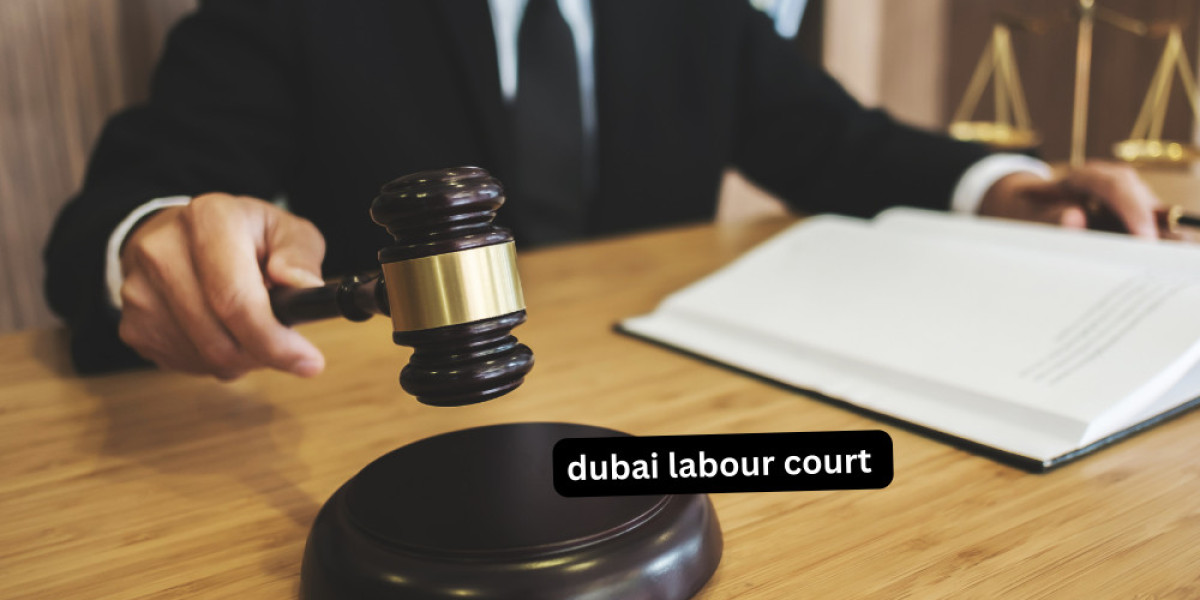Dubai, one of the most vibrant and dynamic cities in the world, is a hub for international business and employment. With millions of expatriates working in various sectors, the need for a robust legal framework to address labour disputes is paramount The dubai labour court plays a crucial role in ensuring that both employers and employees adhere to the labour laws of the United Arab Emirates (UAE). This article delves into the intricacies of the Dubai Labour Court, its functions, procedures, and the importance of its role in maintaining workplace harmony.
What is the Dubai Labour Court?
The Dubai Labour Court is a specialized judicial body established to handle disputes arising between employers and employees. It operates under the umbrella of the Dubai Courts and is governed by the UAE Labour Law, Federal Law No. 8 of 1980, and its amendments. The court's primary objective is to provide a fair and efficient mechanism for resolving labour-related issues, ensuring that the rights of both parties are protected.
Jurisdiction of the Dubai Labour Court
The Dubai Labour Court has jurisdiction over a wide range of labour disputes, including but not limited to:
Employment Contracts: Disputes related to the terms and conditions of employment contracts, including breaches, termination, and non-renewal.
Wages and Benefits: Issues concerning unpaid wages, overtime, end-of-service gratuity, and other financial entitlements.
Workplace Safety: Cases involving workplace injuries, occupational diseases, and violations of health and safety regulations.
Discrimination and Harassment: Complaints related to discrimination, harassment, and unfair treatment in the workplace.
Labour Visa and Sponsorship: Disputes concerning labour visas, sponsorship transfers, and related matters.
The Legal Framework Governing the Dubai Labour Court
The Dubai Labour Court operates within the framework of the UAE Labour Law, which outlines the rights and obligations of both employers and employees. Key provisions of the law include:
Employment Contracts: The law mandates that all employment relationships be formalized through written contracts, specifying the terms and conditions of employment.
Working Hours and Overtime: The law sets standard working hours, overtime regulations, and rest periods to ensure fair working conditions.
Termination and End-of-Service Benefits: The law provides guidelines on the termination of employment contracts, including notice periods and end-of-service gratuity.
Health and Safety: Employers are required to provide a safe working environment and adhere to health and safety standards.
Filing a Case in the Dubai Labour Court
Step 1: Attempting Amicable Resolution
Before filing a case in the Dubai Labour Court, parties are encouraged to resolve their disputes amicably. The Ministry of Human Resources and Emiratisation (MOHRE) offers mediation services to facilitate out-of-court settlements. If mediation fails, the case can be escalated to the Labour Court.
Step 2: Filing a Complaint
To initiate a case, the aggrieved party must file a complaint with the Dubai Labour Court. The complaint should include:
A detailed description of the dispute.
Relevant documents, such as the employment contract, pay slips, and any correspondence related to the dispute.
Evidence supporting the claim, such as witness statements, medical reports, or photographs.
Step 3: Court Proceedings
Once the complaint is filed, the court will schedule a hearing. Both parties will be notified of the hearing date and are required to attend. During the hearing, the judge will hear both sides, review the evidence, and may ask questions to clarify the issues.
Step 4: Judgment and Enforcement
After considering the evidence and arguments, the judge will issue a judgment. If the judgment is in favor of the employee, the court may order the employer to pay compensation, reinstate the employee, or take other corrective actions. The judgment is enforceable, and failure to comply can result in legal penalties.
The Role of Legal Representation
While it is not mandatory to have legal representation in the Dubai Labour Court, it is highly recommended. Labour laws can be complex, and having a qualified labour lawyer can significantly improve the chances of a favorable outcome. Legal representatives can assist with:
Preparing and filing the complaint.
Gathering and presenting evidence.
Representing the party in court.
Negotiating settlements.
Common Types of Cases in the Dubai Labour Court
Unpaid Wages and Benefits
One of the most common types of cases in the Dubai Labour Court involves unpaid wages and benefits. Employees may file a claim if they have not received their salaries, overtime pay, or end-of-service gratuity. The court will examine the employment contract and payment records to determine the validity of the claim.
Wrongful Termination
Wrongful termination cases arise when an employee believes they have been dismissed without just cause or in violation of their employment contract. The court will assess whether the termination was in line with the UAE Labour Law and the terms of the contract.
Workplace Injuries and Compensation
Employees who suffer workplace injuries or occupational diseases may file a claim for compensation. The court will consider medical reports, workplace safety records, and other evidence to determine the employer's liability.
Discrimination and Harassment
Cases of discrimination and harassment in the workplace are taken seriously by the Dubai Labour Court. Employees who experience unfair treatment based on gender, nationality, religion, or other protected characteristics can file a complaint. The court will investigate the allegations and may award damages if the claim is substantiated.
The Importance of the Dubai Labour Court
The Dubai Labour Court plays a vital role in maintaining a fair and just working environment in Dubai. By providing a legal avenue for resolving disputes, the court helps to:
Protect Employee Rights: Ensuring that employees receive their rightful wages, benefits, and protections under the law.
Enforce Employer Obligations: Holding employers accountable for their legal obligations, including providing safe working conditions and adhering to employment contracts.
Promote Workplace Harmony: Encouraging amicable resolutions and reducing the likelihood of prolonged disputes.
Uphold the Rule of Law: Reinforcing the importance of adhering to labour laws and regulations in Dubai.
Conclusion
The Dubai Labour Court is an essential institution in the UAE's legal system, providing a fair and efficient mechanism for resolving labour disputes. Whether you are an employer or an employee, understanding the functions and procedures of the Labour Court is crucial for navigating the complexities of labour law in Dubai. By upholding the rights and obligations of both parties, the Dubai Labour Court contributes to a harmonious and just working environment, fostering the continued growth and success of Dubai's economy.
In conclusion, the Dubai Labour Court stands as a testament to the UAE's commitment to fairness and justice in the workplace. As Dubai continues to attract talent from around the world, the Labour Court will remain a cornerstone of the city's legal framework, ensuring that the rights of all workers are protected and that employers operate within the bounds of the law.







